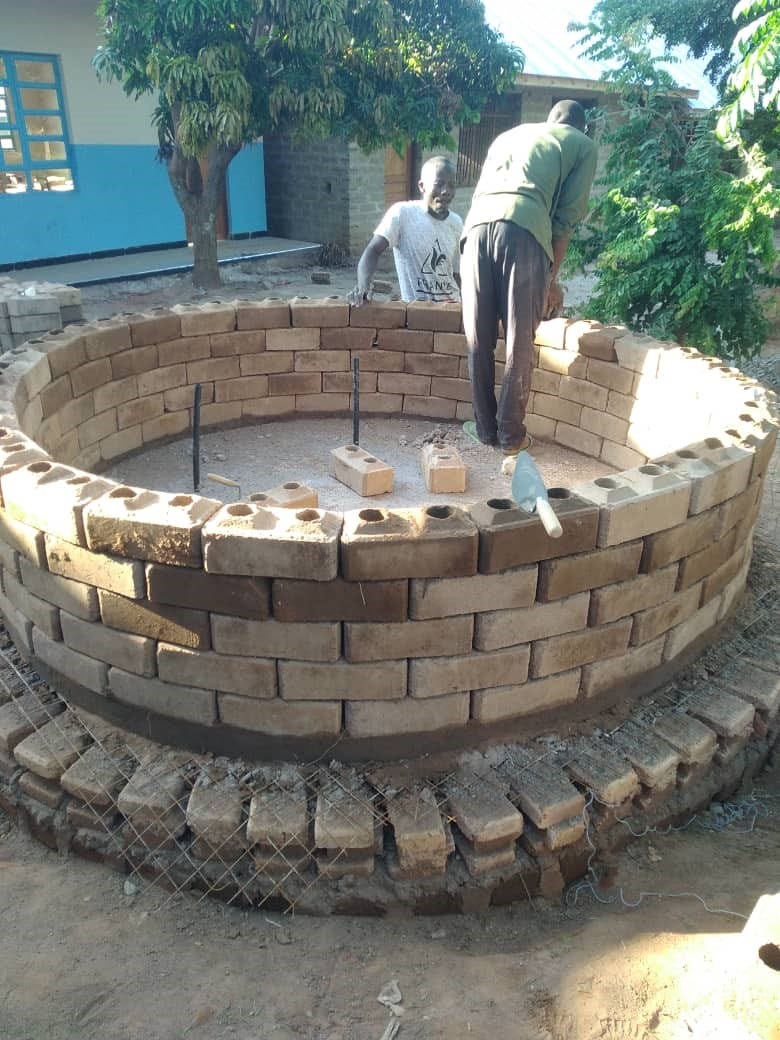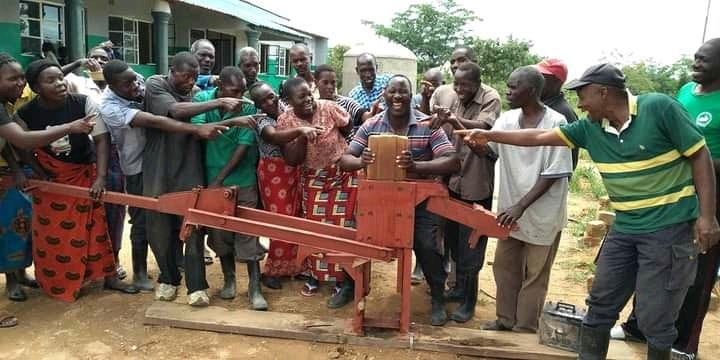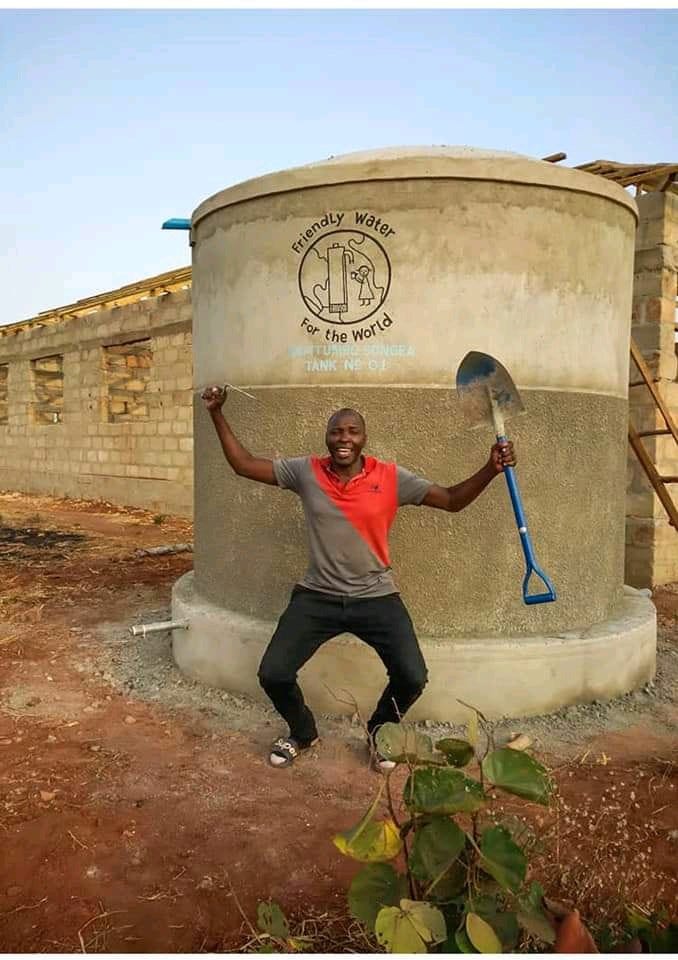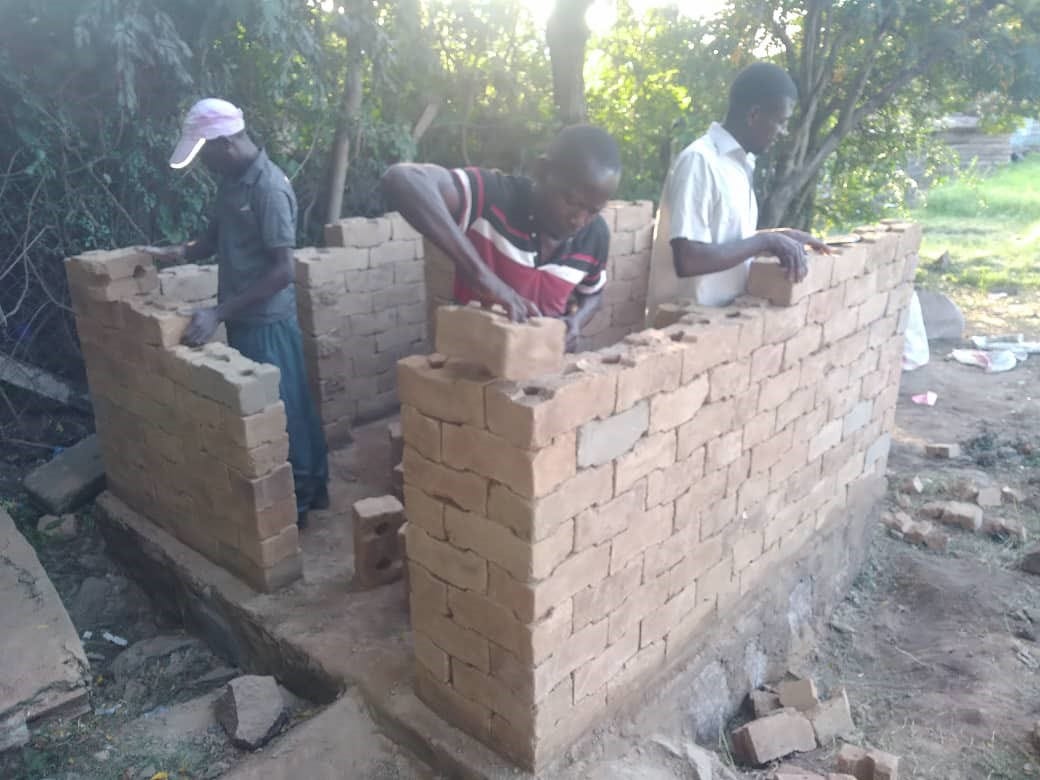Addressing water and sanitation needs with soil-stabilized bricks
Kennedy Mahili from CLAO, Tanzania
My name is Kennedy Mahili. I am the Executive Director of CLAO, an NGO in Mwanza Tanzania that supports women and vulnerable communities.
Since 2018 we have been leading construction projects using soil-stabilized bricks that we produce on site. Using a hand-powered brick press manufactured in Tanzania, we use local soil, clay and some cement to produce blocks that can be used for a variety of construction needs. We engage local community members and volunteers to produce bricks which can also be sold to generate revenue.
At CLAO, we specialize in the design and construction of water tanks using the soil-stabilized bricks. Why water tanks? Water is life for every human being and also for animals. Due to climate change water is becoming more precious in developing countries like Tanzania where people and animals and plants are dying. By constructing water tanks CLAO is fulfilling its mission to supporting vulnerable women and other populations by extending rain water catchment harvesting for domestic use to ensure production and environmental conservation.
By using local materials and soil-stabilized bricks CLAO can construct tanks that are affordable and reduce family conflict due to the patriarchal system which leaves women to fetch water often traveling long distances. Water tanks also address security, poverty reduction and livelihood improvement in rural communities.
In January, 2023 we hosted architecture and engineering students from the University at Buffalo, inviting them to join construction of a water tank and explore our techniques while sharing ideas for improving our process. We are happy to host visitors and collaborate with groups that wish to learn about our work and contribute to continued improvement.
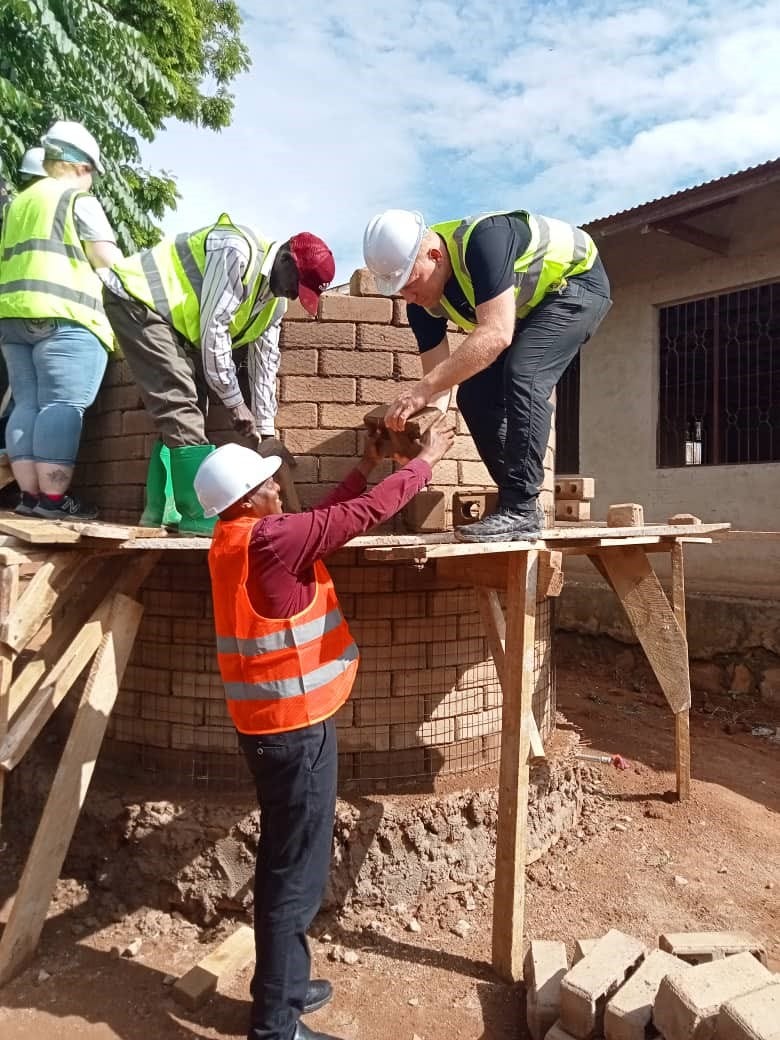
We also use the bricks to make eco-flush toilets using local materials availabile in the community and the local market, and local youth who are eager to develop skills. Millions of people lack toilets in Tanzania and use pit latrines or open defication which attract flies and cause disease. This affects young children who suffer illnesses and women during menstruation who often drop out of school due to poor attendance.
Eco-flush toilets provide health improvements and also support agriculture. How do they work? They use interlocking bricks with drainage systems to seperate urine and water from waste. We plant bacteria by mixing local grasses and soil which is full of bacteria to suck the remaining water from human waste and change the waste into manure.
Soil-stabilized bricks represent a valuable resource for rural communities in Tanzania and throughout Africa. They use local resources and also engage area youth and vulnerable community members who are eager to develop skills and contribute to projects. The bricks themselves have value and can be sold but can also be used to address community needs such as water, sanitation, and housing. They also present opportunities to collaborate with groups through sharing of design, investment in equipment and materials, and innovating through collaboration.
We are intersted in sharing this technology with communities interested in soil-stabilized bricks, water tanks and eco-flush toilets. We are also interested in connecting with groups of students or professors seeking engagement through Experiential Learning or study abroad opportunities.
If you would like to learn more about out work and ways to engage, please find contact information through the CLAO Facebook Page.




